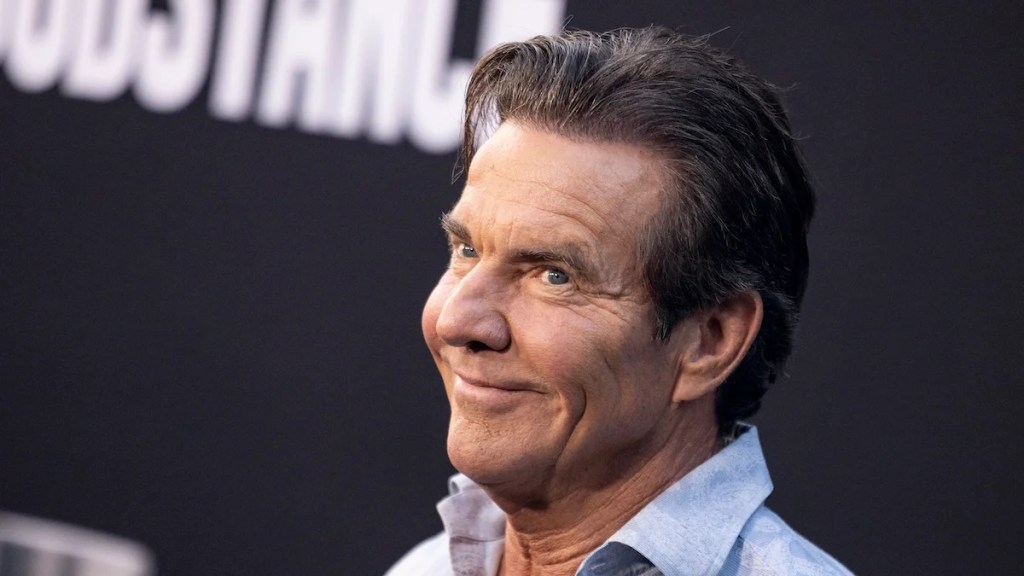Donald Trump recently held a rally in Coachella, California, a city known primarily as the site of a famous music festival, which raises questions about his campaign strategy in a predominantly Democratic region. This rally is scheduled ahead of another event at Madison Square Garden in New York City. At the rally, actor Dennis Quaid made a notable appearance, urging attendees to consider the upcoming election as a critical choice between the U.S. Constitution and the popular social media platform TikTok. Quaid’s challenge for the audience to “pick a side” underscored a theme he developed throughout his speech about national identity and priorities.
In his address, Quaid echoed the sentiments often expressed by Trump, lamenting the changes he perceives have occurred in the U.S. since Trump left office. He referenced the country’s past with “cheap cash” and oil exports to allies, suggesting these were indicators of better times. Quaid highlighted his admiration for Ronald Reagan, whom he named his favorite president of the 20th century. However, he made it clear that Trump holds the title for the 21st century in his eyes. This positioning indicates Quaid’s intent to align himself with Trump’s values and political messaging.
The actor also shared a personal story about his housekeeper, whom he revealed had been living in the country illegally for over a decade. Quaid noted the fear she experienced concerning potential deportation, explaining that he only chose to help her seek citizenship after Trump’s election. This story served to humanize Quaid while simultaneously reinforcing his support for Trump, highlighting a perceived disconnect between past bipartisan values and current immigration challenges under the Biden administration.
As Quaid continued, he expressed disdain for the current administration, framing the Biden-Harris administration’s narrative as a failed “fairy tale.” He championed Trump’s approach to foreign policy, particularly referencing the Abraham Accords, which he argued would have established significant peace agreements in the Middle East, including between Israel and Saudi Arabia. Quaid’s remarks suggested that Trump’s foreign policy accomplishments were not merely political victories but crucial steps towards enduring global stability.
Quaid’s assertions painted a stark contrast between the pre- and post-Trump eras, positioning the former president as a symbol of optimism in contrast to what Quaid described as the disillusionment currently felt in the U.S. This narrative resonated with the rally attendees, who may share his concerns about current U.S. leadership and foreign policy. The emotional undertone of Quaid’s speech seemed designed to rally support not just for Trump but for a broader vision of American unity and strength framed in conservative ideology.
Overall, Quaid’s speech at the rally served as both a personal endorsement of Trump and a commentary on the larger implications of the current administration’s actions. By invoking a choice between constitutional values and contemporary cultural trends, he sought to motivate the crowd to align with a conservative vision that prioritizes what he claims are traditional American principles. The event highlighted the ongoing political divide in the country and the ways in which cultural narratives are woven into the fabric of the electoral process.

